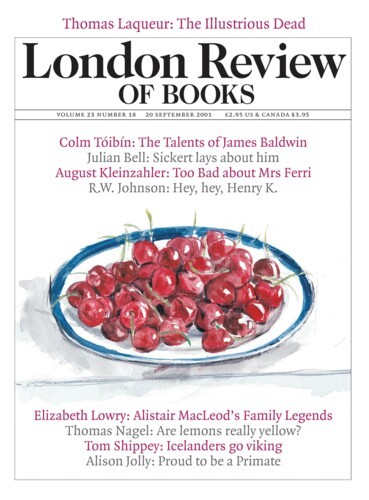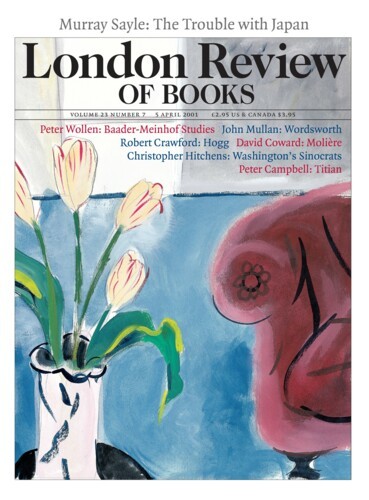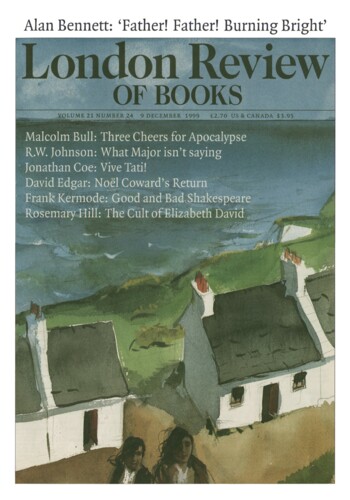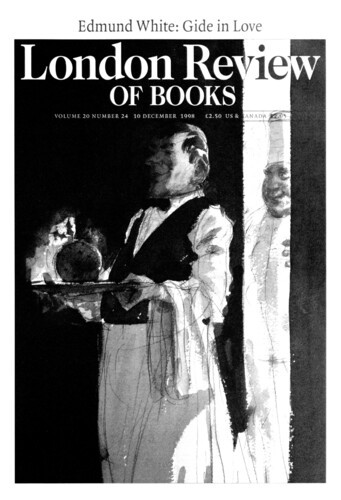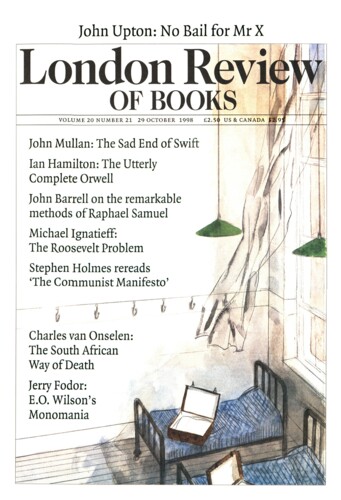Two Poems
John Burnside, 20 September 2001
This is our game for now, rehearsing words to make the world seem permanent, and ours; before it disappears, I will have named all we can see, from here to the snow on Kvannfjellet, the yarrow in the grass, a passing swan, eider and black-backed gull at the rim of the sound.
I gloss uncertainties – this lime green weed that fetches up a yard above the tide; those seabirds...
